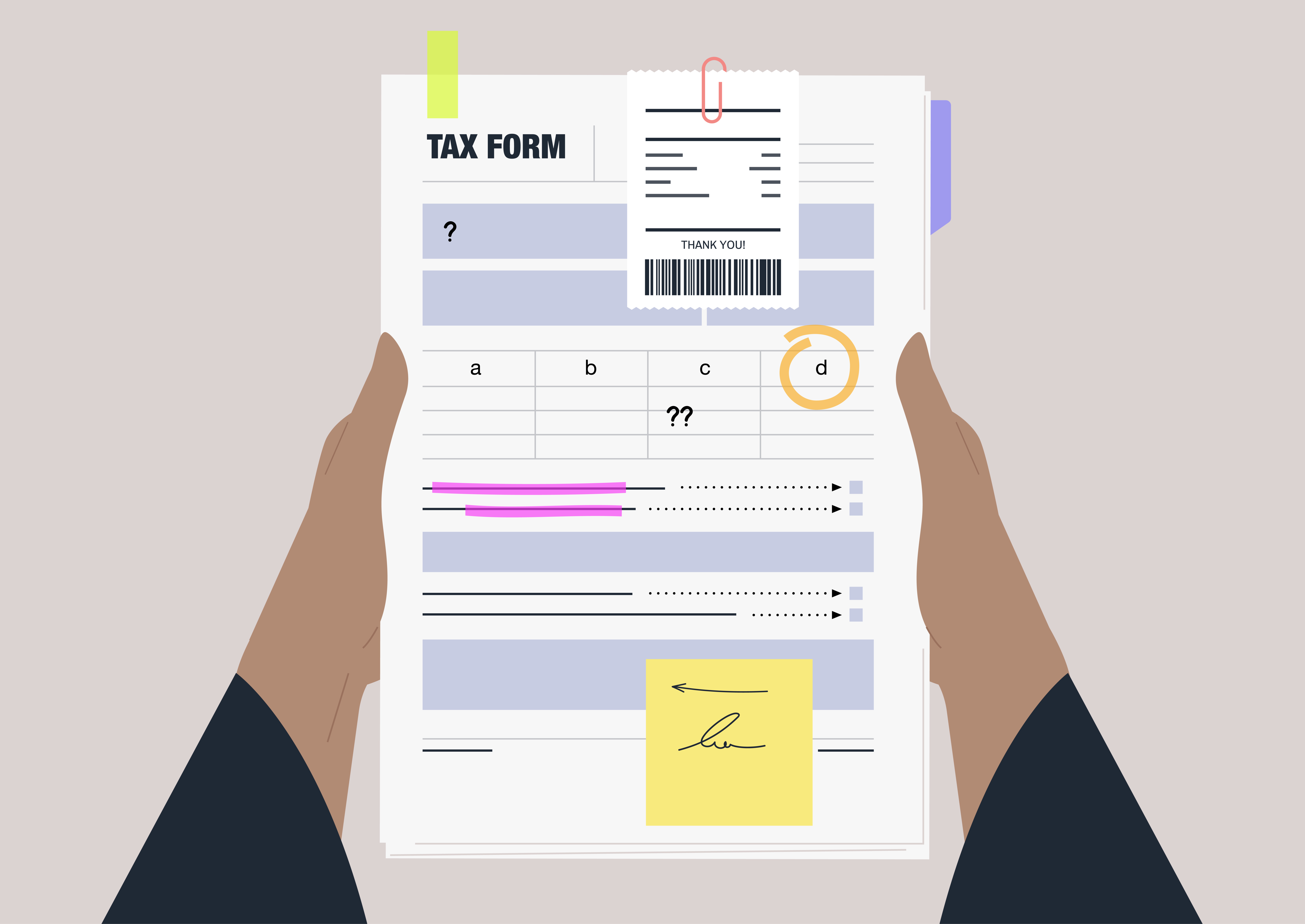7 tax breaks that could save you money
Brush up on these tax breaks before you file to make sure you're not overpaying


A free daily email with the biggest news stories of the day – and the best features from TheWeek.com
You are now subscribed
Your newsletter sign-up was successful

Ready or not, tax season is here.
While it might feel tempting to put off preparations until April, getting a jump on your taxes can help ensure you file a mistake-free return on time. Plus, you will have ample time to take advantage of any money-saving tax breaks you might be eligible for.
Let's brush up on important dates for this year's tax season:
The Week
Escape your echo chamber. Get the facts behind the news, plus analysis from multiple perspectives.

Sign up for The Week's Free Newsletters
From our morning news briefing to a weekly Good News Newsletter, get the best of The Week delivered directly to your inbox.
From our morning news briefing to a weekly Good News Newsletter, get the best of The Week delivered directly to your inbox.
- Jan. 23, 2023: Tax season officially begins, with the IRS starting to accept and process tax returns on this date.
- Jan. 31, 2023: This is the deadline for employers to send out W-2 forms, so keep an eye on your mailbox (or your inbox) if you're expecting one. This is also when certain 1099 forms are sent.
- Feb. 15, 2023: For taxpayers who opted to claim an exemption from their employer withholding taxes last year, which is done through filing a Form W-4, this is the deadline to refile. Per Turbotax, "You would file this exemption request if you anticipate having no tax liability this year and had none in the previous year."
- April 18, 2023: Tax day! Either make sure you've turned in your tax return by this date, or file a Form 4868 asking for an extension.
Here are seven tax breaks that could save you money when you file this year.
Out-of-pocket charitable deductions
While you might already account for the large charitable donations you make during the year, you may overlook the smaller ones — and those can add up. It doesn't even necessarily have to be a direct donation, as Kiplinger notes "you can write off out-of-pocket costs that you incur while you are doing work for a charity," like ingredients for a meal or stamps for mailing.
Note that if your contribution totals $250 or more, you'll need to get an acknowledgment from the charity that you provided support.
Gambling losses
A gambling loss doesn't have to be a total wash, thanks to this tax break. Your deduction is limited to the amount of winnings that you report as taxable income — or, as Nerdwallet puts it, "[y]ou can't deduct more than the amount you win."
A free daily email with the biggest news stories of the day – and the best features from TheWeek.com
You'll also need to itemize deductions to get this tax break for gambling losses, so make sure you hang onto your receipts. You might also consider keeping a detailed log of your gambling activity to reference if needed.
Child and dependent care credit
As any parent knows, child care isn't cheap.This tax credit, the child and dependent care credit, can help you cover the cost of care for your children or other dependents, such as an elderly parent. For 2022, you could receive a non-refundable tax credit of up to 35 percent, or $3,000, of qualifying expenses for one child under the age of 13 (it's up to $6,000 for two or more qualifying children).
There are requirements you'll have to meet to qualify, including both modified adjusted gross income for the year and the child or dependent living arrangements. According to U.S. News & World Report, what's key to note is that this credit is "available to those who pay for child care so they can work," meaning you'll need earned income to qualify.
Social Security taxes you pay when you're self-employed
Self-employed individuals who cover the entire 15.3 percent Social Security and Medicare tax out of their pocket "instead of splitting it 50-50 with an employer," explains Kiplinger, are able to write off half of the amount they pay. Even better? You don't have to itemize your deductions to snag this tax break.
Refinancing points
If you refinanced your mortgage in 2022, you may be able to deduct the points on the new loan. However, this works a bit differently than it did when you took out your mortgage initially.
With a refinance, you can deduct points over the life of the loan — so, as an example, you could deduct 1/30th of the points every year for a 30-year mortgage, which would total $33 per year for every $1,000 you paid in points. When you pay off the loan, you'll be able to deduct all the points you hadn't yet deducted.
Lifetime learning credit
You can take advantage of the lifetime learning credit to offset higher education costs for your children, your spouse, or even yourself. This could include the cost of classes at a community college or vocational school, and according to U.S. News & World Report, "[t]here is no cap on how many years someone can receive a lifetime learning credit." The credit is for up to $2,000 annually, though the right to claim it phases out at certain income levels.
Student loan interest paid by a parent
Even if your parent is the one repaying your student loan debt, you may be able to claim a deduction. That's because the IRS looks at those parental payments "as if the money were given to the child, who then paid the debt," Kiplinger explains. Assuming the child is no longer claimed as a dependent, they can deduct up to $2,500 in student loan interest a year that their parents paid.
Becca Stanek has worked as an editor and writer in the personal finance space since 2017. She has previously served as the managing editor for investing and savings content at LendingTree, an editor at SmartAsset and a staff writer for The Week. This article is in part based on information first published on The Week's sister site, Kiplinger.com
New Tax Rules for 2023: Download your free issue of The Kiplinger Tax Letter today. No information is required from you.
Becca Stanek has worked as an editor and writer in the personal finance space since 2017. She previously served as a deputy editor and later a managing editor overseeing investing and savings content at LendingTree and as an editor at the financial startup SmartAsset, where she focused on retirement- and financial-adviser-related content. Before that, Becca was a staff writer at The Week, primarily contributing to Speed Reads.
-
 The environmental cost of GLP-1s
The environmental cost of GLP-1sThe explainer Producing the drugs is a dirty process
-
 Greenland’s capital becomes ground zero for the country’s diplomatic straits
Greenland’s capital becomes ground zero for the country’s diplomatic straitsIN THE SPOTLIGHT A flurry of new consular activity in Nuuk shows how important Greenland has become to Europeans’ anxiety about American imperialism
-
 ‘This is something that happens all too often’
‘This is something that happens all too often’Instant Opinion Opinion, comment and editorials of the day
-
 A guide to cashing out your retirement accounts
A guide to cashing out your retirement accountsSpeed Read Does order matter? What's the best strategy for taxes?
-
 4 REITs to watch
4 REITs to watchSpeed Read A selection of real estate investment trusts with "exceptional pricing power"
-
 What is 'lifestyle inflation' and how does it limit wealth?
What is 'lifestyle inflation' and how does it limit wealth?Speed Read More money, more problems? Not necessarily.
-
 How to get a mortgage if you're retired
How to get a mortgage if you're retiredSpeed Read If you're considering applying for a mortgage in retirement, here's a look at what to expect, as well as some tips for making the process less painful
-
 How to free yourself from credit card debt
How to free yourself from credit card debtSpeed Read Has your balance gotten out of control? Personal finance experts have some solid tips and tricks to help you get on top of your credit card debt.
-
 Renters' rights, explained
Renters' rights, explainedSpeed Read The Biden administration announced new federal actions to protect tenants as rent prices continue to climb. What rights do renters have already?
-
 A smart guide to ESG investing
A smart guide to ESG investingSpeed Read Some say ESG investing is better for the planet. But is it good for your wallet, too?
-
 How to check — and improve — your credit score
How to check — and improve — your credit scoreSpeed Read A smart guide to your credit and how to make it better
